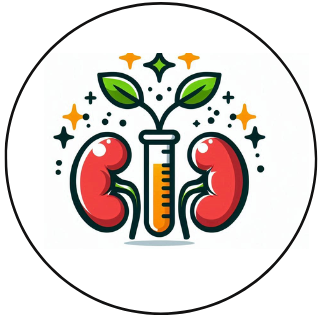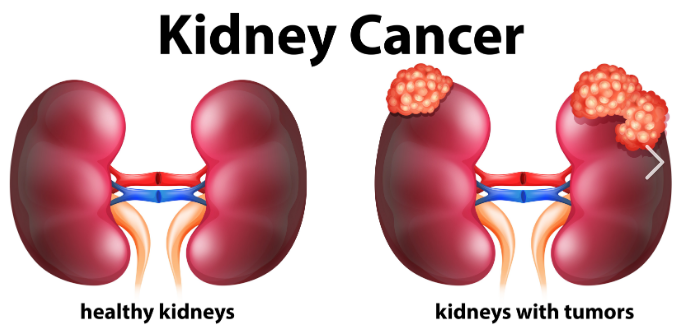Navigating the Unexpected: My Journey with a Kidney Tumor
It all began with what seemed like a straightforward process: applying for a term life insurance policy. As part of the application, I needed to undergo a paramedical exam. I expected the usual—blood pressure check, blood work, and urine sample. The exam itself was routine, but it yielded an unexpected result: high protein levels in my urine. I remember brushing it off, thinking, “I’ll go to my doctor, have him check it out, he’ll give me a clean bill of health, and all will be good.”
However, a visit to my primary care physician didn’t resolve things as neatly as I had hoped. Concerned about the high protein levels, my doctor ordered an ultrasound to get a clearer picture of what might be happening. This was my first hint that something more serious could be at play, but I tried to remain optimistic.
The ultrasound appointment arrived, and I found myself lying on the examination table, the cool gel on my abdomen as the technician moved the probe around my right side. It was supposed to be just a precaution, but on the return visit to the doctor, I found that the precaution turned to further investigation. He told me that a small mass was visible on my right kidney, and I would need to see a urologist for further evaluation.
A whirlwind of emotions engulfed me. What did this mean? Was it cancer, a benign tumor, or just a cyst? I oscillated between anxiety and denial, convincing myself that it was probably nothing serious. The appointment with the urologist couldn’t come soon enough. During the consultation, the urologist explained that we needed a more detailed image, so an MRI was ordered.
The MRI was a tense experience, lying still inside the machine, my mind racing with different scenarios. When the results came back, they showed a definite mass on the top of my right kidney. The urologist’s words were measured but serious: “The mass appears to be cancerous. The good news is that it seems to be encapsulated, meaning it hasn’t spread. However, it will need to be addressed within the next few months.”
Relief washed over me at the news that yes it was cancer, but it wasn’t spreading, but this relief was tempered by a flood of new fears. What if I became incapacitated? What if I didn’t survive the surgery? How would my family cope and provide for themselves? Yet, amidst these fears, a surprising sense of peace emerged. A quiet voice within reassured me, “No matter what happens, all will be well.”
Life continued with a facade of normalcy, but the looming surgery was always in the back of my mind. I procrastinated scheduling it, prioritizing work and other commitments, knowing that the tumor wasn’t going anywhere. My sense of urgency was overshadowed by the demands of daily life.
When the time finally came to prepare for surgery, I was given detailed instructions. I made a crucial decision: if the surgery did not go as planned and my remaining kidney was found to be a match for my brother, who was awaiting a kidney transplant, it would be donated to him. This gave me a strange comfort, knowing that even in the worst-case scenario, something good could come from it.
The surgery day arrived, and I was a bundle of nerves and emotions. During surgery, it was discovered that the tumor had spread further into the kidney than initially thought. This meant that instead of just removing the tumor, the entire kidney would need to be removed. Later, I joked with the doctor about ordering take-out in the middle of surgery. I told him I didn’t really want to know where the side of beans came from, but they were probably kidney beans. As I was wheeled to the operating room, I said a silent prayer for the strength to face whatever lay ahead. The surgery, thankfully, went well. The tumor and my kidney were successfully removed. I woke up in recovery, groggy but profoundly grateful to be alive.
The days following surgery were a time of introspection. I reflected on the emotional rollercoaster from diagnosis to treatment. Fear, anxiety, relief, peace, and gratitude had all taken their turns in my heart. Now, gratitude was the dominant emotion—gratitude toward God for revealing the tumor early enough to treat it, gratitude toward my medical team for their skill and care, and gratitude for the love and support of my family and friends.
During recovery, I realized that I, Jay Bench, am now both a kidney and cancer patient. The recovery process was challenging, but every day I felt stronger. The scar on my abdomen was a reminder of the battle I had fought and won. The possibility of the cancer returning lingered in my thoughts, a shadow that occasionally cast a pall over my newfound sense of normalcy. But I resolved to live each day with gratitude and purpose, cherishing the life I had been given a second chance to live.
Looking back, the journey from the initial discovery of high protein levels in my urine to the removal of my kidney was fraught with emotional highs and lows. The diagnosis brought a wave of fear and uncertainty, while the treatment and recovery were marked by gratitude and introspection. The thought that the cancer might return is a reminder of life’s unpredictability, but it also strengthens my resolve to live fully and meaningfully.
Ultimately, this experience has taught me the fragility and preciousness of life. I learned to trust in the process, to find peace amid uncertainty, and to hold onto hope and faith even in the darkest moments. While the fear of recurrence is real, the gratitude for each day I have remains my guiding light. No matter what the future holds, I am at peace with the journey and ready to face whatever comes next, knowing that all will be well.
4o


Hi there
I like how your article beautifully captures the profound emotional journey faced by kidney disease patients. It emphasizes the importance of mental resilience and support systems in navigating the ups and downs from diagnosis through recovery. The personal stories shared are both touching and inspiring, providing hope and encouragement to those in similar situations.
Thanks for sharing
Thanks Troy
You’re right. The mental resilience is a big factor, coupled with a positive outlook. Both of which come through gratitude and faith. I hope any who read the post recognize that no matter the type of health challenge, these attributes help get us through.